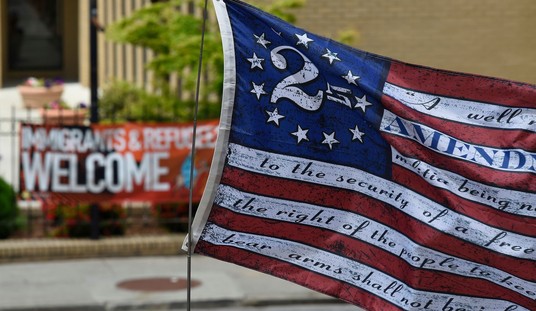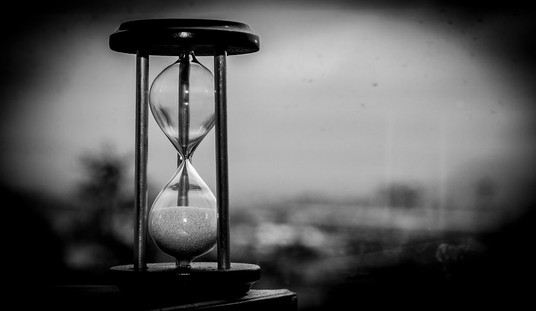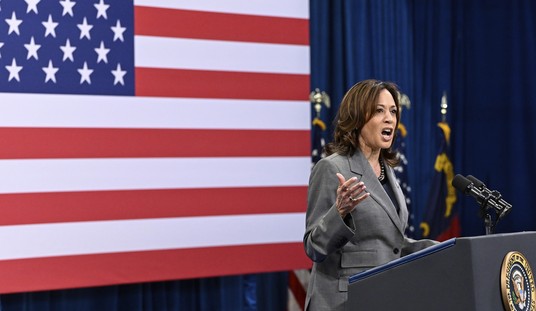In light of the arrest of six individuals in Michigan who are now charged with conspiring to kidnap Michigan Gov. Gretchen Whitmer, overthrow the state government, and establish some sort of constitutionally-based utopia, I thought it might be time for a little history lesson what the Founders thought about the right to resist tyranny and how best to go about it in a representative republic like the one they established.
Speaking as a gun owner who believes that the Second Amendment does actually serve as a check against government tyranny, I think it’s vitally important that we understand what the men who crafted the Constitution thought should and would happen if a tyrannical government ever took charge here. Thankfully, one of them told us in great detail how they believed Americans would respond.
During the debate over the ratification of the Constitution in 1788, James Madison, John Jay, and Alexander Hamilton (writing under the pseudonym Publius) penned dozens of editorials and opinion pieces arguing in favor of adopting the document as a new framework of government for the United States and responding to objections from those opposed to ratification, known collectively as the Anti-Federalists.
One of the chief objections of the Anti-Federalists was that the Constitution was so open-ended in its scope that it would usurp virtually all powers traditionally and historically held by local or provincial/state governments, eventually resulting in a federal government that would seize power and rule over the people, instead of being ruled by them. In Federalist 46, Madison took on those objections in a straightforward manner.
Madison began his argument by noting that the argument over the supremacy of the Federal government versus the state government left out one crucial fact; that both levels of government are ultimately subjected to the power and will of the People.
The federal and State governments are in fact but different agents and trustees of the people, constituted with different powers, and designed for different purposes. The adversaries of the Constitution seem to have lost sight of the people altogether in their reasonings on this subject; and to have viewed these different establishments, not only as mutual rivals and enemies, but as uncontrolled by any common superior in their efforts to usurp the authorities of each other. These gentlemen must here be reminded of their error. They must be told that the ultimate authority, wherever the derivative may be found, resides in the people alone, and that it will not depend merely on the comparative ambition or address of the different governments, whether either, or which of them, will be able to enlarge its sphere of jurisdiction at the expense of the other.
Madison went on to argue that over the course of the previous ten years, the affections of the People had largely switched from Congress and the national government to their own state governments. If that were to change in the future, Madison claimed, then we should suppose that it’s because of the “manifest and irresistible proofs of a better administration” provided by the federal government.
Look at that aspect of Madison’s argument nearly 250 years later, its weakness is readily apparent. The supremacy clause of the Constitution places the federal government as the ultimate authority in the United States, and hundreds of years of legislation, executive actions, and court decisions have only swelled the power of the federal government over individual citizens and all other levels of governance. Still, Madison believed that if it ever got to the point where the federal government descended into tyranny, the People had tools at their discretion to use to fight back, and one of them was the right to keep and bear arms.
Note that I didn’t say the Second Amendment, because the Second Amendment hadn’t been written when Madison penned Federalist 46. Instead, Madison was writing about a pre-existing right to keep and bear arms that would be enshrined in the Bill of Rights, not one that would be created by it.
That right to keep and bear arms wasn’t the first tool that should be used, however. In fact, it was the tool of last resort according to Madison, who pointed to several other options available to provide a check on government, including legal challenges and non-mass non-compliance on the part of the people as well as legislative maneuverings by lawmakers.
On the other hand, should an unwarrantable measure of the federal government be unpopular in particular States, which would seldom fail to be the case, or even a warrantable measure be so, which may sometimes be the case, the means of opposition to it are powerful and at hand. The disquietude of the people; their repugnance and, perhaps, refusal to co-operate with the officers of the Union; the frowns of the executive magistracy of the State; the embarrassments created by legislative devices, which would often be added on such occasions, would oppose, in any State, difficulties not to be despised; would form, in a large State, very serious impediments; and where the sentiments of several adjoining States happened to be in unison, would present obstructions which the federal government would hardly be willing to encounter.
Civil disobedience, in other words, and the greater the injustice or repugnancy of the federal law or action in question, the greater the response by the People.
But ambitious encroachments of the federal government, on the authority of the State governments, would not excite the opposition of a single State, or of a few States only. They would be signals of general alarm. Every government would espouse the common cause. A correspondence would be opened. Plans of resistance would be concerted. One spirit would animate and conduct the whole. The same combinations, in short, would result from an apprehension of the federal, as was produced by the dread of a foreign, yoke; and unless the projected innovations should be voluntarily renounced, the same appeal to a trial of force would be made in the one case as was made in the other.
Madison was writing before the formation of the two-party system in the United States, so perhaps he can be forgiven for not recognizing that every tyranny is going to enjoy at least a measure of popular support. Even during the War of Independence, though, there were plenty of Tories who were born on American soil but still viewed themselves as loyal subjects of King George III.
Still, he has a point. True tyranny at the federal level would result in “general alarm” and if not every government would espouse the common cause, you’d still see coalitions forming between states and various local governments within those states to resist the unconstitutional actions of the federal government.
If those political forces alone were not enough to check the federal government the people and “the States should, for a sufficient period of time, elect an uninterrupted succession of men ready to betray both; that the traitors should, throughout this period, uniformly and systematically pursue some fixed plan for the extension of the military establishment; that the governments and the people of the States should silently and patiently behold the gathering storm, and continue to supply the materials, until it should be prepared to burst on their own heads,” then Madison said the People still possessed one last tool at their disposal as a check on tyranny: their right to bear arms.
Let a regular army, fully equal to the resources of the country, be formed; and let it be entirely at the devotion of the federal government; still it would not be going too far to say, that the State governments, with the people on their side, would be able to repel the danger. The highest number to which, according to the best computation, a standing army can be carried in any country, does not exceed one hundredth part of the whole number of souls; or one twenty-fifth part of the number able to bear arms. This proportion would not yield, in the United States, an army of more than twenty-five or thirty thousand men. To these would be opposed a militia amounting to near half a million of citizens with arms in their hands, officered by men chosen from among themselves, fighting for their common liberties, and united and conducted by governments possessing their affections and confidence.
The “half a million citizens” figure that Madison uses roughly represents the number of free men capable of bearing arms in the United States at the time, which had a total population of about 2.5-million free citizens. The militia that Madison refers to is the body of the people, then, not a special class of citizens tasked with the responsibility of fighting back against tyranny.
It’s also important to point out that Madison didn’t believe the body of the people bearing arms would act alone. Rather, state and local governments would still play a leading role in opposing federal tyranny, with the People “fighting for their liberties” while “united and conducted by governments possessing their affections and confidence.”
The Second Amendment, under this theory, protects the “in case of emergency break glass” tool of the People; the ultimate and final safeguard against a tyrannical government that ignores the will of its constituents and even takes arms against them. I happen to think Madison is right, which is one of the reasons why I’m a Second Amendment advocate to begin with. Like Madison, however, I’m not an anarchist, and I fully subscribe to the idea that the political system always has a role to play in resisting unconstitutional power grabs, especially if the federal government were to ever devolve into a full-blown tyranny (as opposed to a bloated and increasingly powerful government of our own making).
I also believe that Madison was right in talking about the other tools that are available to Americans, including civil disobedience, which has been the most powerful tool for change in the post-Civil War-era. Take Prohibition, for example. The government made it illegal to buy and sell most alcohol, but that didn’t mean that people decided to stop drinking. From state and local governments that announced it would be up to the feds to enforce federal alcohol laws in their jurisdictions to the millions of Americans who learned to make home-brewed wine or do the Charleston at a speakeasy, the American people’s widespread resistance to Prohibition ultimately led to its demise.
We’re seeing the same thing play out with marijuana at the moment, as well as with mask mandates and other COVID-19 executive orders. The same spirit motivates the Second Amendment Sanctuary movement, in which county and local governments have declared (with varying degrees of sincerity, it has to be noted) that they won’t spend any public funds enforcing unconstitutional gun control laws. All of these are forms of resistance to unpopular laws that not only include, but actively seek out support from differing levels of government, because without it, your cause is doomed to defeat.
My friend Laura Carno wrote an entire book about how government ruins nearly everything, which is why we can’t ignore it. I remember a conversation I had with a friend about a decade ago, back when I was still living in the D.C. suburbs. My neighborhood had an HOA, which I absolutely hated, and my friend agreed that overzealous HOA’s were terrible things. That’s why he ran for the HOA board in his own neighborhood and eventually became the president of the association. Rather than just complain about it, he decided to get involved and actually do something so that his HOA sucked as little as possible.
For several reasons, I took the opposite route and moved to rural Virginia, where I’m my own HOA. Still, I’ve become involved in several local political issues, including my county’s Second Amendment Sanctuary resolution, and I know that the only hope of getting a government you can live with is to be as engaged as possible in the political system. The more overbearing one level of government becomes, the more important it is to bring other levels of government to bear against the encroachment on personal liberties and the usurpation of power.
I suppose all this is my really long way of saying that those who believe that they and their buddies are going to be able to kick off some righteous revolution that will restore the United States to the pure constitutional republic that it was in 1776, or 1787, or 1791 by trying to kidnap a governor are fooling themselves, just like those who think that they can impose a glorious Communist regime in the United States by busting up a Starbucks, trying to burn down a courthouse, or throwing rocks into people’s homes.
A successful revolution or defense against tyranny must inevitably draw support from somewhere within the existing political system, no matter if we’re talking about widespread non-compliance with and un-enforcement of unpopular and unconstitutional laws or, in the most dire of circumstances, a broad coalition of state and local governments chosen and backed by the People who will, along with the People themselves, “repel the danger” of a tyrannical federal government that’s willing to use military force to subjugate its citizens.
Any revolution that’s based on just burning it all down and building on the ashes of what came before runs counter to our own history and the ideals of the revolutionaries who fought for independence against Great Britain, and is both a fundamentally un-American and profoundly bad idea.








